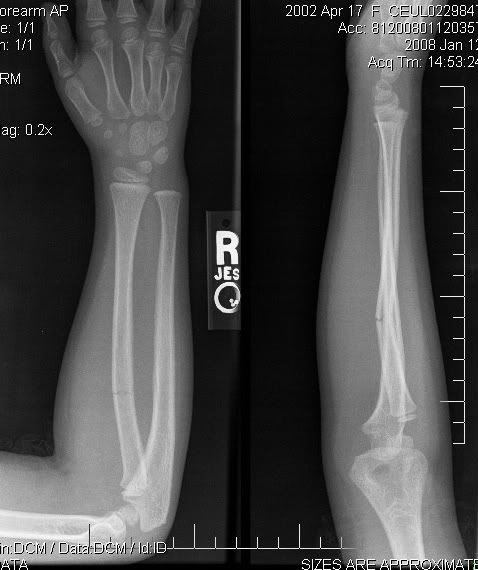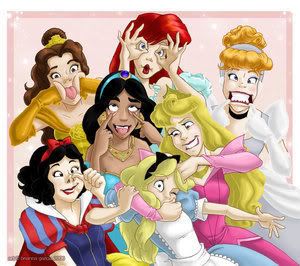A friend of mine may be hearing the call to homeschool her children. She has so many questions, just as any parent has when starting the process.
Instead of a private email, I thought I'd post this here in case someone searching the internet is looking for answers to their questions. Perhaps it will not only help my friend, but other families.
WHY?
Although today the decision to homeschool is more widely accepted, there are still many people who don't believe in homeschooling. It's not uncommon to have a perfect stranger "quiz" your children to test how well they are educated at home.
Everyone has their own reasons for why, and often socialization is one of them. It is also the most widely asked question about homeschooling: "What about socialization?"
Definitions of Socialization:
Wordnet- train for a social environment; "The children must be properly socialized"
wiktionary: socialize - To interact with others; To instruct, usually subconsciously, in the etiquette of a society; To take into collective or governmental ownership
oregonstate.edu: the process by which culture is learned; also called enculturation. During socialization individuals internalize a culture's social controls, along with values and norms about right and wrong.
unk.edu: The process whereby individuals learn to behave willingly in accordance with the prevailing standards of their culture
wordnet: socialized - under group or government control; "socialized ownership"; "socialized medicine
Let's take these definitions into consideration. The first definition "training for a social environment" makes sense. How can we function as a society if we don't understand what is socially acceptable and moral. The question is: who is doing the training? Is it someone that shares your values? In most cases, a teacher has more than 10 students in a class. More often that number is closer to 20 or 25. How easy is it to teach every individual to make good moral decisions when there is one of you and 20 children? The result is that often one child is teaching another child by example. So you are not only dealing with adjusting social behavior in your own family, but you end up adjusting social issues brought in from other families. In a perfect world, elementary aged children would have rock solid morals that follow their family and the ability to influence their peers. How many adults do you know that can make good decisions when their peers are asserting pressure? Now imagine someone with little experience on this earth. If you are a family that is concerned about passing on your morals and values to your children, a homeschooling situation is optimal.
Let's consider the definitions "
To take into collective or governmental ownership" and "The process whereby individuals learn to behave willingly in accordance with the prevailing standards of their culture." One of the first things I recommend to someone considering homeschooling is to read the book
Dumbing Us Down: The Hidden Curriculum of Compulsory Schooling by John Taylor Gatto. Written by an award-winning educator, it outlines the educational system today and how it schools children to "merely obey orders and become smoothly functioning cogs in the industrial machine." Isn't that taking us into collective ownership? The "prevailing standards of [our] culture" are not my own standards; I could rattle off a list of disagreements with societal standards, but instead I'll say that I value family, my children, modesty, commitment, charity/giving, personal accountability and working hard for what I have. If I were collectively owned, wouldn't I have to subscribe what the majority of people value? The trouble is, societal values change; what was once unacceptable becomes acceptable. I choose to educate my children to hold to their values, not change with the time because it's popular.
I address socialization first because it's the most commonly asked question. Children in a public school situation are trained to socialize with children their own age while in school. Homeschooled children are taught how to relate to all ages of children and adults during a typical school day. The parents have the opportunity to teach their own values that may or may not align with all of the social norms or prevailing standards.
What about your children having friends? Here is where parents have to leave their own insecurities behind and realize that it's not the VOLUME of friends, but the QUALITY of friendships your child finds. How many of us made friends in school with someone that was not really a good fit for us just because the person happened to sit next to us in school? In a different situation, would you have made friends with the same person? We cannot devalue the need for friendships, but children will find those in their daily lives: the neighbor, a friend in gymnastics class, a cousin, Girl Scouts/4H/Little Flowers, etc. And they will be more likely to find friendships from commonality than geography.
If you ask a homeschooling family the question "Why do you homeschool?" you will receive different answers from every family. Some prevailing answers are the lack of depth in the public schools, the lack of shared values, too much structure and not enough innovation, no parental control of content, too prevalent of a social agenda, little emphasis on American History or history in general, and the list goes on. My list evolves constantly and I'm always adding to my "Why I Homeschool" category. You can read all of my musings
HERE.
If you're thinking of homeschooling and reading this, what is holding you back? I'm willing to wager it has more to do with the brain washing (only teachers who have learned to manage a classroom can teach, you're not smart enough to teach, your children need socialization, you can't teach what you're weak in) than with the facts. The truth is, if you're willing to put in the time and effort, the rewards are tenfold.
HOW?
Educational Content
This is very individual. The content of an education is dependent upon the goals, values and capabilities of the homeschooling parent.
Some parents choose to keep their children home while using all of the public education content--these are online schools that provide computers, content and testing. They are fully funded by the education system. I've seen parents very successful with this method of teaching in that the children exceed the standards of that particular school system. The bonus is that children are not subject to the socialization issues of a standard classroom and a parent doesn't have to be well-educated to be successful.
Another method is to find your own boxed curriculum. There are so many to choose from! These curriculum include teacher's editions with answers to the quizzes and tests, a student edition and often a workbook. You can find these for any subject! The beauty is that, again, you have to have some knowledge of a subject, but you don't have to particularly skilled.
Eclectic. Some parents love to find different resources on their own and don't follow any particular curriculum. With the resources available online and at the library for free, it's easy to put together a curriculum that is inexpensive. Often, though, these parents have the ability to be critical about the information available, so some good knowledge of the subjects is necessary. Some parents used boxed curriculum for certain subjects and put together their own for other areas.
Unschooling. This is a broad definition. It ranges from those who never sit at a table with their children to do "schoolwork" to those who spend every day schooling but use different methods like museum visits, book choices, or simply they study whatever the child wants to study.
These are all very broad and just touch on the "How" of homeschooling. The truth is, it can be as complicated or as simple as you want it to be. It can be as expensive or as inexpensive as you choose.
So HOW do you choose? Meet other homeschooling families (join a support group or an online group, read the thousands of blogs on the internet). After learning all you can, make a choice for your family and seek out a support group that is using a similar method of education. There are unlimited resources, sample family schedules, lists and lists of field trip ideas, even free lesson plans online. The beauty is: you can change what you're doing at any time. Are you worried that changing will hurt your children? I read awhile back ( I wish I could find the original reference) that if you take an illiterate/uneducated adult who is WILLING, you can teach the information from grade 1 through grade 12 in 80 hours. Will changing course hurt you? No, and it's likely to renew your commitment to the teaching process.
Before I go any further, though, this must be said:
You can TEACH your children. YOU DO NOT EDUCATE them. They must choose to educate themselves. You can INSPIRE your children and provide them with information. You can mentor them with sharing what you know. Anything you force into them will be remembered "for the test." How much of what you learned in school do you remember? Why?
Here is my recommended reading list for parents who are considering homeschooling:
Dumbing Us Down: The Hidden Curriculum of Compulsory Schooling by John Taylor Gatto.
A Thomas Jefferson Education by Oliver DeMille
This is the book that helped us establish our educational principles and the one that reformed our education. It centers around having a mission, learning to be a leader, and education by classics and mentors. Here is more information in a previous post.
Homeschooling and the Voyage of Self-Discovery by David H Albert
The Well-Trained Mind by Susan Wise Bauer and Jessie Wise
Read more...














